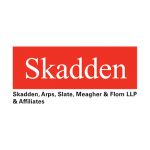Market volatility has prompted equity capital market participants to develop innovative transaction structures. And more are on the horizon
Over the past few years German equity capital markets have experienced more volatility than before the global financial crisis. Market participants – corporations, private equity firms, institutional investors as well as investment bankers and lawyers – continue to develop novel transaction structures with the intention of shortening the time to market and de-risking equity placements.
Shelf registrations
Although the shelf registration process, which permits the approval of a disclosure (registration) document for a securities transaction well in advance of an actual offering, has been available since the EU Prospectus Directive was implemented in 2005, German companies make little use of it.
Under the regime, a company prepares a registration document, securities note and summary note. Together, these three documents comprise the prospectus for a securities offering. The preparation of a registration document in advance of an actual transaction may significantly shorten the period between preparation and launch of an initial public offering (IPO) or a large capital increase. Companies can front-load the most time-consuming preparatory tasks (including due diligence and prospectus drafting) as well as registration document approval by the German regulator (BaFin). The registration document is valid for 12 months following BaFin's approval. Upon the approval and publication of the securities note and summary note, the prospectus is also valid for 12 months.
The registration document is made public by BaFin upon its approval. As such, the company has an up-to-date and thoroughly prepared disclosure document available to support pilot fishing exercises, early investor meetings and other pre-marketing efforts in anticipation of a subsequent equity offering. The downside of this process is that the company needs to spend time and incur legal, accounting and other costs prior to having certainty over whether and when an IPO or capital increase can actually take place. In the past, the shelf registration process has been mainly used by large German financial institutions such as Deutsche Bank, Commerzbank and Allianz.
Going forward, a broader spectrum of German companies may increasingly consider and make use of the shelf registration approach to establish documentary preparedness early in the process, and to be able to subsequently access the equity capital markets more quickly. This is particularly relevant in a continuing volatile environment where capital markets windows have become much narrower and more difficult to predict.
Pre-IPO placements
In recent years, German companies have increasingly been looking for contractual commitments from anchor and cornerstone (mostly large institutional) investors in advance of an IPO. This is an attempt to stabilise the future shareholder base early, and to de-risk the transaction. Depending on the maturity of the IPO candidate, the search for high quality anchor and cornerstone investors can be a challenge. This is particularly the case if the prospective investors don't have access to reliable and comprehensive company information on which to base their investment decision and conduct a due diligence review. Pre-IPO or cornerstone investors typically will ask for some discount off the subsequent IPO price, and their involvement needs to be disclosed in the IPO prospectus. Other issues surrounding pre-IPO or cornerstone investors relate to lock-up periods (which may or may not be available) and the ability to count their shareholding towards the minimum free-float requirement for stock exchange listing purposes.
|
|
"Privately negotiated investments by institutional investors several months before an IPO have increased" |
|
|
Germany has seen several IPO transactions during the past two years featuring pre-IPO investments (anchor investments, cornerstone investments or investments made on the basis of a preferred allocation at the time of the IPO). But the largest ever true pre-IPO private placement of equity securities in Germany – and still the benchmark – is the Evonik transaction which took place in 2013. Several dozen institutional investors purchased Evonik shares in an aggregate amount of €1.7 billion ($1.9 billion) via two rounds of global private placements. And because the pre-IPO private placements ended up accounting for more than 10% of the company's share capital, it met the free-float and other listing requirements of the Frankfurt Stock Exchange without needing to implement a public offering of its shares. The pre-IPO investors bought their Evonik shares without a prospectus, on the basis of generally available information, at a discount to the subsequent IPO price and with a lock-up period lasting until the Evonik shares were listed on the exchange.
It is unlikely that the scope and size of Evonik's pre-IPO investment structure will be replicated any time soon; the circumstances were quite unique. After three failed IPO attempts, and because of generally and publicly available information provided by Evonik to its then-existing bondholders, institutional investors already had sufficient information about the company. This enabled them to make an informed cornerstone investment decision without the need for significant further due diligence, or the need to go through the exercise to prepare a comprehensive securities prospectus. This meant that, notwithstanding the size and complexity of the transaction, it could be implemented within a very short timeframe (less than two months) and attract investors from all over the world: the US, Europe, the Middle East and Asia.
Because of the special circumstances surrounding the Evonik pre-IPO placement (including those related to disclosure), meeting the entire free-float requirement for a German stock exchange listing on the basis of cornerstone investments will remain the exception. However, privately and bilaterally negotiated investments by institutional investors several months before an IPO have increased significantly during the past 24 months. They are expected to continue to increase in the months and years to come.
Block trades and accelerated book-building
Undocumented block trades remain another appealing way for German public companies to secure quick access to the equity capital markets. This method allows them to avoid subscription rights of existing shareholders, a comprehensive documentary due diligence investigation and the preparation, review and approval of a lengthy disclosure document. Block trades in the German market typically involve an accelerated book-building, which means the time between the transaction's launch and pricing is typically 24 hours or less.
Companies accessing the capital markets to raise funds on a block-trade basis rely on section 186 (3) of the German Stock Corporation Act (Aktiengesetz). This permits the exclusion of existing shareholders' subscription rights if:
the capital increase does not exceed 10% of the company's issued share capital; and
the placement price is not less than three to five percent below the market price at the time of the placement.
The decision to launch a block trade is typically made following the Frankfurt Stock Exchange's close for the issuer to be able to align the desired transaction-related communication with the respective ad hoc publication requirements under the German Securities Trading Act (WpHG). Block trades are then typically implemented overnight. The German issuer or shareholder contacts a number of investment banks on the evening before the intended placement, soliciting bids in an auction-type process (on the basis of previously prepared and rather standardised documentation) and awarding the trade to the bank committing to the highest backstop price. If all goes well, the pricing of the trade takes place before noon (and in any event during normal business hours) on the following day.
If a block trade involves newly issued shares from a cash capital increase, the settlement process – and in particular the registration of the capital increase with the local commercial register – needs to be discussed with the commercial register judge and the lead banks' settlement departments sufficiently in advance in order to secure a T+2 or T+3 settlement.
Dual-track structures
Selling shareholders, in particular private equity firms planning to exit an investment, frequently run parallel IPO and M&A processes to increase transaction certainty and obtain the highest possible price.
From a documentation standpoint there are significant synergies between equity capital markets and M&A processes; particularly in relation to the IPO prospectus and information memorandum provided to the bidders in the M&A process. Also, the due diligence processes for the two tracks can be aligned.
Dual tracks are typically structured in a way that enables the exiting shareholder to make the final decision on which route to take as late in the process as possible. However, aligning the respective timetables is challenging, and requires experienced M&A and equity capital markets transaction teams.
Over the past few years, most German dual tracks have ended up in an M&A trade sale. The reason for this differs from transaction to transaction, and from company to company. But often, the selling shareholders have opted for transaction certainty and a full exit at a defined valuation. It should be noted that even if an IPO were to provide the exiting shareholder with a higher valuation, the initial exit will only be partial, leaving residual exposure to share price developments and capital markets volatility for many months – and possibly years – to come.
Outlook
In Germany, capital markets volatility and an element of unpredictability regarding transaction windows are here to stay, and will be the new normal over the years to come.
As a result, alternative and innovative new transaction structures will continue to be developed. These will build on the existing methods, including increasingly early documentary preparedness (through shelf registration documents or other frontloaded due diligence and documentary efforts), and shortened time to market periods through block trades and accelerated book-buildings. De-risking through pre-IPO placements or dual-track structures will become better established options for German companies seeking to broaden their financing flexibility and options.
In addition to novel transaction structures, the financial crisis has led to changes in the roles and leverage among equity capital markets participants, with private equity firms, institutional investors and shareholders becoming ever more active.
The continuation of these developments could lead to further changes in the ways that German equity capital markets transactions will be structured, documented and marketed in the future.
By Skadden Arps Slate Meagher & Flom partners Stephan Hutter and Katja Kaulamo in Frankfurt

